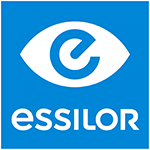Night Vision Problems: Symptoms, Causes & Correction
Turning the Spotlight on Poor Night Vision
Poor night vision or night blindness (and if you want to impress your friends with the medical term – Nyctalopia) refers to a more-than-normal difficulty seeing in dim light or at night. This difficulty with seeing in the dark also tends to be more noticeable when you move from a brightly lit area into a barely lit one, and vice versa. Most people report first noticing the problem when driving at night.
How Is It Diagnosed?
If you notice such symptoms and think you may have poor night vision, consult your ophthalmologist immediately. Your usual eye examination won’t reveal poor night vision, so you may need to request to be tested.
Testing for night blindness is a simple process in which your doctor will use eye drops to cause dilation and then examine your eyes with a Slit Lamp (a microscope with a bright light on it). After this, there is a series of tests that detects key identifiers of night blindness.
Poor Night Vision And Age
Poor night vision is seen as an “old age” problem. While it tends to affect people as they age, it can affect anyone at any age. However, most sufferers notice a significant loss of vision at night after their 40th year.
And things can change relatively quickly, for example, an average 50 year old may need twice as much light in order to see like an average 30 year old. In addition, poor night vision is sometimes a symptom of an underlying condition, so it’s possible that it can happen to anyone, of any age, even children.
Can Poor Night Vision Be Dangerous?
Difficulty when driving at night is the primary problem with poor night vision, since a driver’s ability to react in a timely and sensible manner depends on how well they can see. Normal vision is limited at night anyway, so night blindness can significantly increase the chances of an accident.
High beams, auxiliary lights and fog lights which are designed to help you when driving at night, can put those with poor night vision at further risk of accident due to the glare they cause.
Top 5 Causes of Night Blindness
Some causes are treatable, requiring lifestyle changes, medical or surgical intervention, while some others are not.
Lack of Vitamin A
If you are already getting enough vitamin A in your diet then taking more won’t cure your poor night vision. However, if you have a vitamin A deficiency then you can take that as a definite cause of your night blindness.
Suggested treatment: Eating carrots and leafy vegetables or take a vitamin supplement.
Not enough Zinc
Vitamin A needs Zinc to perform better, so you need to be taking the right amount of that too.
Suggested treatment: Get Zinc from beef, poultry, beans, and nuts.
Cataracts
These are caused by debris that builds up due to the growth and death of cells in the lens of the eye. Cataracts slowly cloud your lens and vision, distorting the light that comes into your eyes. You may see ‘halos’ around lights and ‘starbursts’ or have blurry vision.
Suggested treatment: Cataract surgery.
Overexposure to sunlight
Too much-prolonged sun exposure increases your risk of cataract development and is, therefore, a major cause of poor night vision.
Suggested treatment: Photochromic lenses or anti-glare coatings can help prevent damage caused by sunlight.
Diabetes
The disease predisposes you to night vision problems. High blood sugar damages the blood vessels and nerves in your eyes over time causing a condition called Retinopathy.
Suggested treatment: Traditional diabetes treatment.
However, prevention is always better than cure, so a healthy diet can prevent the onset of diabetes.
The best advice, in general, is to be vigilant and responsible and make sure that you have an eye exam at least on an annual basis. See your doctor immediately if you notice changes to your vision.
Having trouble seeing at night?
Visit your nearest eye specialist for an eye exam today




